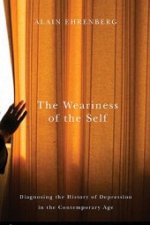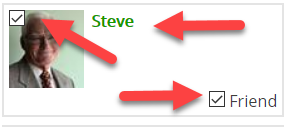David Baxter PhD
Late Founder
Understanding Social Phobia
American Academy of Family Physicians, 1999
What is social phobia?
Most people feel nervous in social situations, like having a job interview, going to a high school reunion or giving a speech. Most of us worry about what we're going to say, do or even wear during these events. These events often become easier with some experience. However, in people with social phobia (also called social anxiety disorder), these events and other social situations can be frightening and disabling.
Social phobia usually begins in the early teens, although some people have had it for as long as they remember. Others feel it coming on later in life, as social demands increase. It often runs in families. Sometimes it leads to other problems, such as depression or substance abuse.
How does a person with social phobia feel?
Most people with social phobia have a strong fear of being humiliated or embarrassed in front of other people. People with social phobia feel as though everyone is watching them, until they blush, sweat or otherwise show their fear. They often believe that showing anxiety is a sign of weakness or inferiority. They also believe other people are more confident and competent than they really are.
People with social phobia usually know their fears are not completely rational, but they still find themselves dreading social situations. They may go out of their way to avoid going to some events. If they do go to them, they usually feel very nervous before and very uncomfortable during the event. Afterward, the unpleasant feelings may linger as they worry about what other people thought of them.
How often is social phobia a problem?
Some people have social phobia in only one or two situations, like performing in public or talking to an important person. Others will have it in many situations, including using a public bathroom, eating in a restaurant, talking on the telephone or signing their name in front of people.
What helps social phobia?
Social phobia is a persistent disorder that usually has to be helped with medical care. It's not just shyness. Cognitive behavioral therapy (called CBT) helps people see social situations differently. The therapy also involves learning how to reduce anxiety, and improving social and conversational skills. Antidepressants and benzodiazepines can also help some people with social phobia. People with a certain form of social phobia, called "performance anxiety," can take medicines called beta blockers just before they perform. Even if you're worried about your social phobia, your doctor can help you control your fears.
American Academy of Family Physicians, 1999
What is social phobia?
Most people feel nervous in social situations, like having a job interview, going to a high school reunion or giving a speech. Most of us worry about what we're going to say, do or even wear during these events. These events often become easier with some experience. However, in people with social phobia (also called social anxiety disorder), these events and other social situations can be frightening and disabling.
Social phobia usually begins in the early teens, although some people have had it for as long as they remember. Others feel it coming on later in life, as social demands increase. It often runs in families. Sometimes it leads to other problems, such as depression or substance abuse.
How does a person with social phobia feel?
Most people with social phobia have a strong fear of being humiliated or embarrassed in front of other people. People with social phobia feel as though everyone is watching them, until they blush, sweat or otherwise show their fear. They often believe that showing anxiety is a sign of weakness or inferiority. They also believe other people are more confident and competent than they really are.
People with social phobia usually know their fears are not completely rational, but they still find themselves dreading social situations. They may go out of their way to avoid going to some events. If they do go to them, they usually feel very nervous before and very uncomfortable during the event. Afterward, the unpleasant feelings may linger as they worry about what other people thought of them.
How often is social phobia a problem?
Some people have social phobia in only one or two situations, like performing in public or talking to an important person. Others will have it in many situations, including using a public bathroom, eating in a restaurant, talking on the telephone or signing their name in front of people.
What helps social phobia?
Social phobia is a persistent disorder that usually has to be helped with medical care. It's not just shyness. Cognitive behavioral therapy (called CBT) helps people see social situations differently. The therapy also involves learning how to reduce anxiety, and improving social and conversational skills. Antidepressants and benzodiazepines can also help some people with social phobia. People with a certain form of social phobia, called "performance anxiety," can take medicines called beta blockers just before they perform. Even if you're worried about your social phobia, your doctor can help you control your fears.



